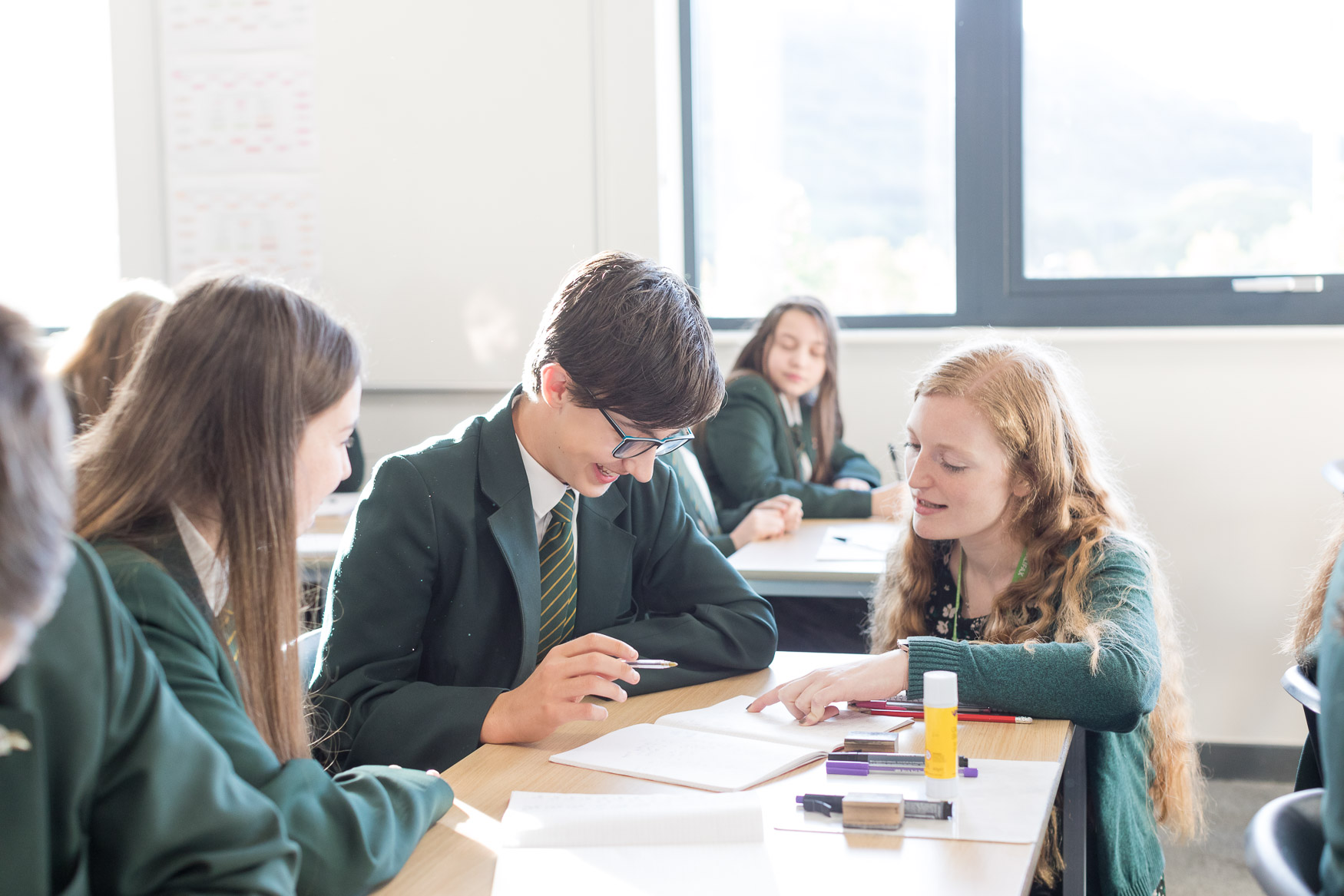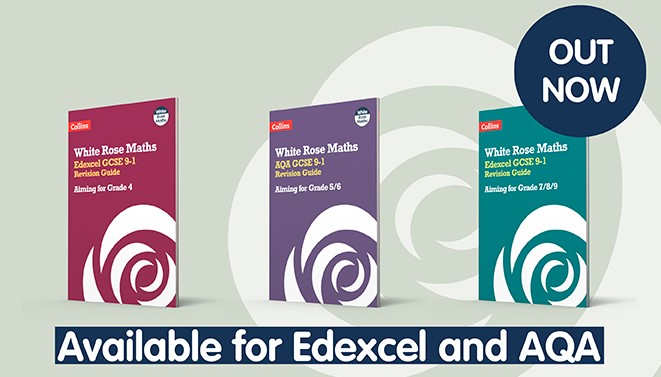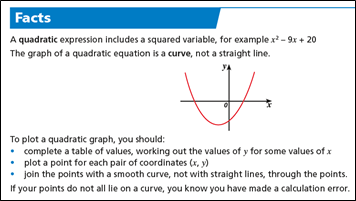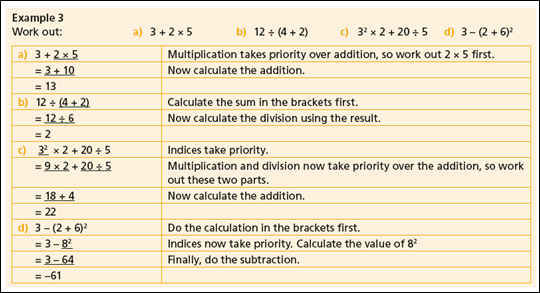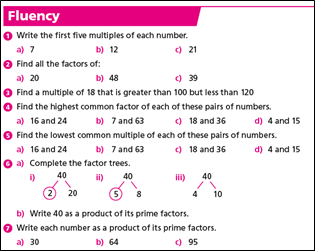The run up to GCSEs can be a very difficult time for Year 11 students. Often, they are still learning new material but are aware of the need to practice and consolidate earlier learning so they are ready for their examinations. This year’s Year 11 students may feel even more challenged, as their earlier learning in secondary schools was disrupted by school closures during the Covid-19 pandemic. Collins have teamed up with White Rose Maths to produce a new set of revision guides for Edexcel and AQA to support them with their studies.
Here are some answers to some Frequently Asked Questions about the guides.
Why are there three levels of guides?
Firstly, rather than being split into just Higher and Foundation tiers, the Collins White Rose Maths revision guides are more targeted to enable students to focus exactly on what they need.
Aiming for a 4 – this revision guide support students who are looking for a standard pass in maths, covering all they need to know.
Aiming for a 5/6 – as well as brief recap of earlier material, this revision guide focuses on the topics learners need to know to get a Grade 5 at Foundation tier or a 5 or 6 at Higher. Students are not looking at material that they already know or on topics they’re not likely to access.
Aiming for a 7/8/9 – this revision guide provides some revision of earlier material but with a major emphasis on the topics students need to know to get the highest grades.
How are they different from any other revision guides?
Compared to most revision guides, there’s a lot more information and a lot more practice! The material for each is broken down into four sections:
Facts – what it’s about and the rules you need to know.
Focus – a series of worked examples (not just one!) with step-by-step explanation of how to get to the solution.
Fluency – practice questions on the basic idea of a topic. This is especially useful when revisiting maths students may not have seen for some time.
Further – more challenging exam-type questions aiming for the higher grades that each revision guide caters for.
What makes them “White Rose”?
Even though they are revision guides, the focus is on understanding the maths rather than “tips and tricks” that are easily forgotten. The models and representations used throughout the guides match those use in the White Rose resources, but students don’t have to seen these before to be able to learn from them.
Do these guides prepare students for all three GCSE papers?
Another key feature of these revision guides is that they prepare students for both calculator and non-calculator papers, including guidance on how to use a calculator when needed.
Are they for use at home or at school?
These revision guides can be used flexibly. The detailed explanations and worked examples mean they can be used independently by students, but there’s plenty of practice questions to use in revision lessons in schools too if needed.
We hope you enjoy using these revision guides with your students!
Ian Davies
Series editor – Collins White Rose Maths GCSE Revision Guides
You might also be interested in: How to smooth the transition from Year 6 to 7 maths
